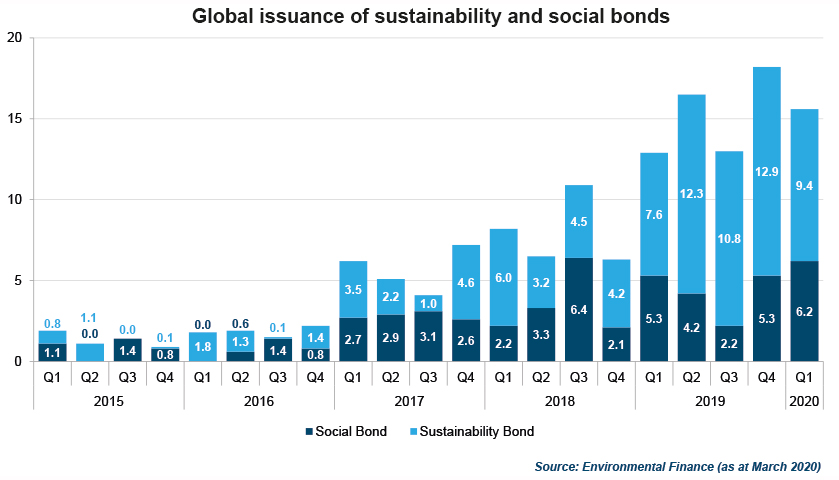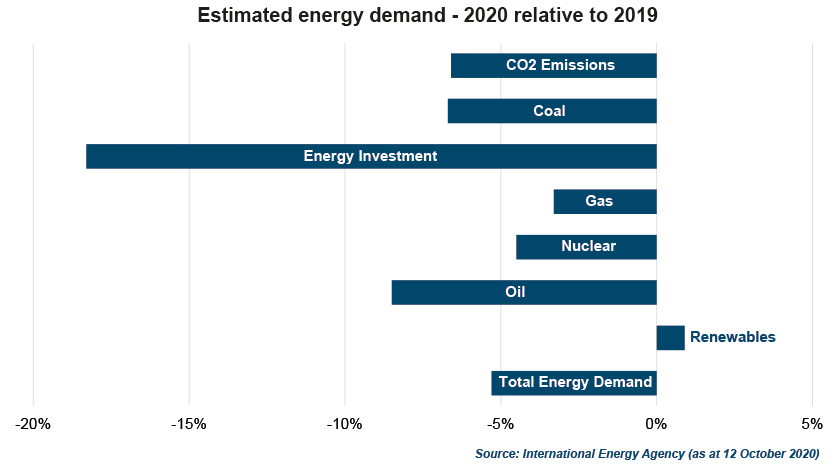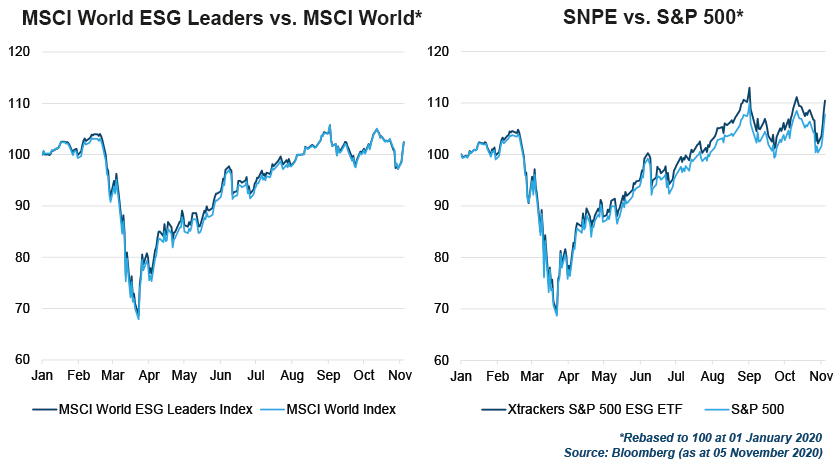The coronavirus, which originated in a wet market in Wuhan, China, in late 2019, has since been declared a global pandemic that has spread across the planet through international travel and global supply chains. At the time of writing, the number of cases worldwide had exceeded the 56 million mark. Additionally, the effects of the virus have reverberated through global financial markets and economies, resulting in the greatest recession since World War II.
The pandemic has also brought to bear the severity of socio-economic inequalities, risks introduced by our unsustainable systems as well as the materiality of fat-tail events. In so doing, it has provided us with an opportunity to redefine ‘a new normal’ and introduce structural shifts that will help us work towards a sustainable future for all.
Governments brought to action
Many countries instituted national lockdowns at an early stage in the pandemic, which is a classic example of a suppression approach to pandemic management. The logic underpinning this methodology is to introduce social distancing to entire populations and minimise the number of additional infections reproduced by each confirmed case, thereby slowing the spread. This, ceteris paribus, is a highly effective public health risk management plan.
However, in reality all other things are not, in fact, equal. Thus, the coronavirus has brought crucial attention to the social element of environmental, social and governance (ESG) issues. National lockdowns entail the suspension of economic activity, which results in loss of income and employment, pushing the vulnerable segments of society, already on the precipice of poverty, into a state of destitution. Also, countries encumbered by acute socio-economic inequalities, like South Africa, have had to face the reality that large segments of their populations living in high population density areas and with inadequate access to clean water and sanitation would face a higher risk of exposure to Covid-19.
The reality of the plethora of social risks has since powered the rollout of unprecedented global fiscal stimulus packages to soften the adverse economic effects of the pandemic. Although these packages have provided the buoyancy required to see us through the immediate challenges, a fundamental shift in the discourse surrounding the risks fragile economic structures pose is translating into the development of a far more robust and well-defined path towards a sustainable future.
Consequently, sustainable investing will be a vital component of a post-pandemic recovery. For instance, there has been an increase in the global issuance of social and sustainability bonds over the past five years, as illustrated in the figure below. New issuances in response to Covid-19 are also coming to market. A guidance note has been published by the International Capital Markets Association (ICMA) to provide a benchmark for the structuring and reporting standards associated with the new Covid-19 social bonds.
Domestically, the South African Minister of Finance announced plans to amend Regulation 28 of the Pension Funds Act to improve the ease with which retirement funds can finance infrastructure projects to help kickstart economic development. The establishment of a robust regulatory framework and the dramatic increase in the need for social intervention worldwide will dramatically improve the level of interest in sustainability bonds and help reshape the economy of the future.

Companies adapting to change
Specific sectors and individual firms have been impacted in varying ways by the pandemic. When governments instituted lockdown laws, the spotlight turned to company governance practices and how executives would navigate the crisis. Corporate boards faced scrutiny from various stakeholder groups that challenged the shareholder-centric model of governance, thereby making the board decision-making process much more multi-faceted. Companies became more cognisant of the central role they play in maintaining the socio-economic well-being of society through sustained value-creation. They also recognised how a well-functioning society puts them in a better position to meet their key performance indicator targets. As a result, many boards decided to suspend or reduce their dividends and bonuses due to uncertainty regarding the scope and duration of the crisis.
From an environmental perspective, working from home policies shed light on the environmental impact of commuting workforces. According to the International Energy Agency, a record drop in emissions is expected for 2020, with a projected 7% decline in energy-related CO2 emissions relative to 2019, as illustrated in the diagram below. Cities across the world have experienced lower smog levels, reduced water pollution and restored biodiversity highlighting the benefits of working remotely. As such, many companies, like Microsoft, have implemented these policies permanently. Research also shows that infectious disease transmission is precipitated by rising temperatures, loss of biodiversity and other elements of climate change. By acknowledging this interconnectedness, global corporations are now playing a pivotal role in mitigating climate change risks.

Another equally crucial indirect consequence of the pandemic is the shift in focus to the social component of the traditional business model. Corporate culture measures such as employee health and safety and labour practices, including paid sick leave, have become priority areas and subject to intense public scrutiny. Furthermore, severe supply challenges have also highlighted the risks of globalisation, and many companies have since amended their supply chain management processes to better diversify suppliers and reshore production. These social developments will not only improve working conditions but foster job creation and enterprise development.
Investor awareness on the rise
In light of the pandemic and growing public awareness of the climate crisis, investors across the world are shifting from a morally agnostic investment approach to one that aligns with their ethical concerns. This is evidenced in budding investor appetite for sustainable products, which has resulted in record-breaking flows into ESG funds in 2020.
Furthermore, companies with strong ESG profiles have shown resilience in this time of crisis by staging a strong recovery post the March market lows. This has prompted investors to rethink the impact ESG considerations may have on their investment returns. As supporting evidence, the chart below illustrates how the MSCI World ESG Leaders Index has delivered returns in line with the MSCI World Index within a tight tracking error, other than its marginal outperformance in the wake of the March 2020 crash. This is a comforting return profile for the passive but ethically driven, investor. On the other hand, the Xtrackers S&P 500 ESG ETF has outperformed the S&P 500 Index in 2020, highlighting that ESG can provide a source for excess returns even in a time of crisis.

From an institutional investor perspective, these developments have further emphasised that investors are not in conflict of their fiduciary duty when they incorporate ESG considerations in the investment process. Sustainable practices, such as strong incident risk management, fair labour practices, stakeholder-conscious boards and clear decarbonisation pathways, have proven to be factors that drive long-term sustainable returns. To this end, we should witness an acceleration in the incorporation of ESG considerations into traditional valuation and risk models.
Forging a path forward
The turbulence caused by the pandemic and its indirect consequences has emphasised the need for global social change, multi-stakeholder centric business models and international cooperation on public health and climate change considerations. This provides us with the carte blanche to rebuild a sustainable future for all and a resilient global financial ecosystem. The question is, which side of history do you, as an investor, want to be on? BM

This article was written by Jessica Phalafala, Fixed Income: Quantitative Analysts, Prescient Investment Management
Prescient Investment Management (Pty) Ltd is an authorised financial services provider (FSP 612).
The value of investments may go up as well as down and past performance is not necessarily a guide to future performance.
This representative is acting under supervision.
















 Become an Insider
Become an Insider
Comments - Please login in order to comment.